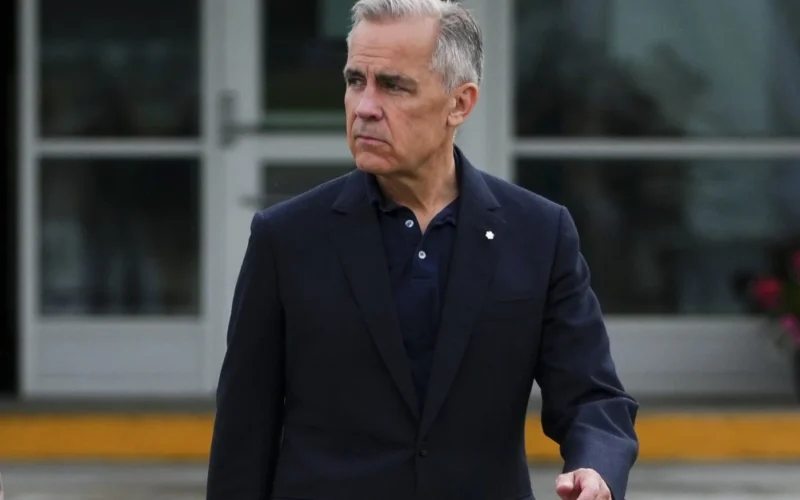Gatineau, Quebec (Rajeev Sharma): Prime Minister Mark Carney is set to meet with First Nations leaders Thursday during a critical summit in Gatineau, Quebec, where he will face growing scrutiny over the recently passed Bill C-5 — legislation that enables expedited approval for infrastructure projects deemed nationally significant, including pipelines, mines, and ports.
The two-day summit, held at the Canadian Museum of History, began on Wednesday and is intended to ease tensions and clarify the federal government’s position on Indigenous consultation in major project development. However, First Nations leaders have voiced strong objections, claiming that their constitutional rights are being undermined.
“Our rights cannot be implemented or respected without us, in substance and in process,” said Assembly of First Nations (AFN) National Chief Cindy Woodhouse Nepinak during a news conference in Ottawa. “They cannot be respected after the fact.”
Bill C-5 was pushed swiftly through Parliament last month and includes an amendment requiring provincial consent. However, a Senate proposal by Mi’kmaw Senator Paul Prosper to enshrine “free, prior and informed consent” — a key tenet of the United Nations Declaration on the Rights of Indigenous Peoples (UNDRIP) — was voted down, fueling further discontent among Indigenous communities.
Woodhouse, representing over 600 First Nations across the country, criticized the government for convening the summit after the bill’s passage, arguing it should have been held beforehand to allow meaningful input. She urged Prime Minister Carney to come forward with concrete amendments and address what she called a “$350 billion infrastructure gap for First Nations kids in this country.”
AFN Regional Chief Joanna Bernard of the Madawaska Maliseet First Nation dismissed the summit as a formality rather than genuine consultation.
“They’re putting up the agenda, they’re deciding how this is going to proceed — but definitely it is not consultation,” Bernard said. “If it was, we would be running the agenda. And this is not the case today.”
While Carney has insisted that Indigenous consultation remains central to Bill C-5, leaders argue that commitment rings hollow without legislative guarantees.
“Until an appropriate process founded in free, prior and informed consent is established between First Nations rights holders and the Crown, the Crown’s legal obligations will not be met,” Woodhouse emphasized.
“Chiefs have made it very clear that First Nation consent for major projects is not optional.”
In a dramatic development, nine First Nations in Ontario filed a constitutional challenge on Monday against both Bill C-5 and Ontario’s Bill 5, seeking to have the laws struck down on grounds they violate Indigenous rights and title.
While the Supreme Court of Canada has affirmed the necessity of consulting First Nations on such projects, it has stopped short of recognizing a legal veto. Still, Indigenous leaders maintain that consultation without consent is not true reconciliation.
The summit continues Thursday, with Carney expected to directly address the leaders’ concerns. Whether the dialogue yields substantive policy shifts remains to be seen.

